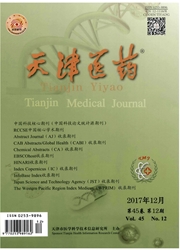

 中文摘要:
中文摘要:
遗传易感因素是诱发乳腺癌的重要原因之一。乳腺癌易感变异根据个体发病率可分为低外显率、中外显率和高外显率3种。传统方法限制了中外显率和高外显率乳腺癌易感基因的发掘,而全外显子测序技术为乳腺癌易感基因的发掘提供了快速高效的方法。目前,利用全外显子组测序发现了一些此前未发现的乳腺癌易感基因,这些易感基因对遗传性乳腺癌发病的危险评估和发病机制的研究提供了有益指导。本文对遗传性乳腺癌的全外显子组测序研究进行综述,对试验设计、数据过滤策略、统计意义和关联分析进行讨论。
 英文摘要:
英文摘要:
Genetic susceptibility factor is one of the important reasons to induce breast cancer.Breast cancer riskvariants are divided into three categories including high,moderate and low penetrances.Traditional BC susceptibility genediscovery approaches limit the search for breast cancer susceptibility genes with high and moderate risk variants.Wholeexome sequencing technology provides a quick and efficient method to discover breast cancer susceptibility genes.Atpresent,a number of breast cancer susceptibility genes have been identified by whole exome sequencing method,whichprovides useful guidance for the risk assessment and pathogenesis of hereditary breast cancer.In this paper,we reviewed thewhole exome sequencing technology and discussed the experimental design,data filtering strategy,statistical significanceand correlation analysis.
 同期刊论文项目
同期刊论文项目
 同项目期刊论文
同项目期刊论文
 期刊信息
期刊信息
